WS 2021/22 – Hauptseminar - Blockseminar:
"The Roaring Twenties 2.0"? A Centenary Perspective on
Narrations of Post-Pandemic Identities (1920s -> 2020s)
Professor:
Prof. Dr. Karin Ikas
Description:
The last time people around the globe came out of lockdowns with mask mandates was exactly a century ago when the last major pandemic, the Spanish Flu, had ravaged the globe immediately after the First World War.
Back then, the dark years were succeeded by the so-called “Roaring Twenties” (1920-1930), a decade of optimism, joy, change, progress, prosperity, growth and innovation. The Germans called them “die Goldenen Zwanziger Jahre” (‘Golden Twenties”) and the French “Années Folles“ (‘Crazy Years’). Novelty associated with modernity and medical innovations (e.g. Penicillin) marked the spirit of the time. Modern technology and a new mobility (cars, radio, telephone, instant camera, moving pictures, etc.) as well as electrification and infrastructure brought modernity to many people, replaced well-known traditions and meant significant changes in lifestyle and culture associated with urbanization, white collar jobs, the New Woman, Jazz Age, the Harlem Renaissance, Art Deco, Expressionism, and Surrealism. Yet, this was also the time of social criticism and the Lost Generation signified by literary notables like Ernest Hemingway, F. Scott Fitzgerald, Edith Wharton and E. M. Forster. In fact, writers and artists contributed significantly to the narration of pandemic and post-pandemic identities in the 1920s.
At a century’s distance, as we are about to come out of the Covid-19 pandemic, speculations about the likelihood of “the Roaring Twenties, version 2.0” make headlines in global news media, as some business leaders, scientists, and politicians trace similarities between the past and the present. For them, the currently expected burst of energy with the transformative digital revolution, the amazing speed in vaccines’ invention and a growing emphasis on sustainable development has the potential to recreate our new normal and the future in a similarly revolutionary way as 100 years ago.
This, however, raises many questions: Is the comparison between the two eras fair? Is it justified to see the Spanish Flu as allegory for Covid-19 in the first place? To what extent can our past be an indicator of what we’re destined to face at all? Which significant social, political and cultural transformations can we expect in the currently unfolding post-pandemic times? What is the role of artists, writers and the media in this context today? How do they participate in the narration of (post-pandemic identities in) the unfolding decade as Roaring Twenties 2.0?
This seminar applies an interdisciplinary approach to answer these questions. It aims to bring the past (1920s) into negations with the present (2020s) for a centenary perspective on narrations of post-pandemic identities in turbulent times in various media.
Participants are encouraged to add their voices to the ongoing debates and to contribute different media samples that are relevant to the topics being discussed and appropriate in light of academic and educational purposes.
Note:
Please note that the seminar will be taught online via Zoom and Moodle. All students must register for this class via Moodle: https://moodle.studiumdigitale.uni-frankfurt.de/moodle/course/view.php?id=1828.
Registered students will receive further info on primary works before the seminar starts. A reader with relevant critical texts will be available at the local copy shop Script & Copy.
Sessions take place as follows:
Intro Session: Tuesday, 19 Oct. 2021 ( 9-11 o’clock)
Block Session I: Saturday, 13 Nov. 2021 (10-16 o’clock, ZOOM 10-14 o’clock)
Block Session II: Saturday, 27 Nov. 2021 (10-16 o’clock, ZOOM 10-14 o’clock)
Block Session III: Saturday, 11 Dec. 2021 (10-16 o’clock, ZOOM 10-14 o’clock)
- Trainer/in: Prof. Dr. Karin Ikas
